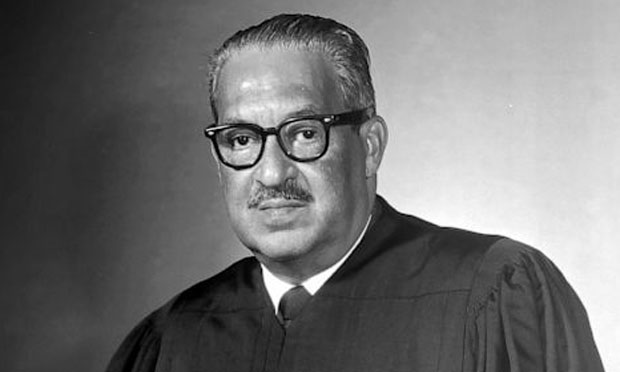News coverage often focuses on the racial composition of juries when minority defendants are on trial in the U.S. justice system, and some analytical reporting has examined larger patterns and the fairness of judges’ sentencing decisions for minority defendants in general. However, the importance of diversity on the bench and the relationship between a judge’s background and legal outcomes attract more infrequent consideration and investigation.
In 2015, two African-American judges made headlines for comments they made during sentencing hearings — one for criticizing white victims of a robbery by two black men and the other for the moving speech he made before sentencing three white men for a lynching in Mississippi in 2011. A 2014 Congressional Research Service report notes that almost 75% of federal district court judges who were active that year were white. Critics, including leaders of the NAACP, have questioned why the men and women who preside over the court system do not better reflect the population they serve. In July 2015 in Florida, several bar-association groups, including the Haitian Lawyers Association and the Caribbean Bar Association, banded together to push for more diversity in the judiciary.
A 2015 study by Maya Sen of the Harvard Kennedy School looks at whether or not the race of judges affects how their decisions are handled during the appeals process. In the study, “Is Justice Really Blind? Race and Reversal in the U.S. Courts,” Sen analyzed the personal characteristics of about 1,500 federal district judges and their appeal and reversal rates on cases decided between 2000 and 2012. She controlled for measures such as experience, quality of legal education, partisanship and ratings awarded by the American Bar Association to try to understand why any differences in reversal rates existed.
The study’s findings include:
- The decisions of black judges were more likely to be overturned than those written by white judges of similar characteristics. Depending on the model used to analyze reversal rates, black judges were up to 10 percentage points more likely to be reversed.
- This 10-percentage-point difference translates into a difference of 2,800 cases. In other words, if black judges were reversed at the same rate as white judges, approximately 2,800 black-authored decisions would have been upheld on appeal rather than reversed over the 12-year period studied.
- It is not clear why the discrepancy exists. Tests were inconclusive as to whether the general liberalness of black judges is the cause of their higher reversal rates.
- There is no statistically significant difference in black judges’ reversal rates according to a specific civil-rights issue or legal categorization.
- Although having black judges on the reviewing panel for an appellate-court case seems to affect reversal rates for lower-court black judges, “there are too few black appeals court judges to make meaningful inferences.”
Sen suggests that further research is needed to clarify the extent to which race and other judicial characteristics may play a role in appellate reviews. She concludes that the implications for such a gap is “striking,” considering that U.S. presidents in recent decades have sought to appoint judges from under-represented groups, including racial minorities. “The racial gap demonstrated here, however, calls into question whether the mere appointment of these individuals is enough,” the study concludes. “After all, if certain judges are being systematically over-turned more often, then this raises questions about their long-term impact on the law, legal precedent, and the legal system.”
Related research: A 2013 study in American Politics Research, “The Voting Behavior of Minority Judges in the U.S. Courts of Appeals: Does the Race of the Claimant Matter?,” examines the decisions of black judges and Latino judges in relation to employment discrimination claims.
Key words: African American, minorities, criminal justice, appeals process, judicial behavior, federal courts, racial disparity


Expert Commentary